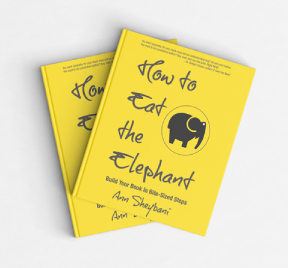Writing
Boundaries 101
January 20, 2013
Walt sat behind the steering wheel talking on the phone with a client. He was getting frustrated with this young woman, who’d hired him so she could get sole custody of her baby, because he couldn’t figure out why she kept ignoring his legal advice. Why she continued to confuse the situation by sleeping with the father. Why she felt guilty about her decision, even though the guy was reputedly a crackpot. Why she wanted to smooth the ruffled feathers of a man she was dragging into court. Why she kept second guessing herself, and calling her lawyer back, while he was on vacation, 18 goddamned times.
See, Walter’s problem is that he was born with boundaries. He understands this woman’s mindset about as well as he does Mandarin Chinese.
Me? I totally get it.
If my blogs resonate, you probably do, too.
And so do most of my coaching clients. The one’s who can’t figure out why they:
- can’t pull the trigger on the deadbeat boyfriend, or the alcoholic husband
- put up with outrageous shit from nasty relatives, or employers
- can’t bring themselves to kick the 22-year old unemployed, pot-smoking kid out of the nest
Having healthy boundaries is all about knowing what is yours, and what belongs to other people. What is your responsibility, what is theirs.
Any confusion of responsibility and ownership in our lives is a problem of boundaries.
There are a lot of aspects to this simple concept, but I’m going to focus on the one I’ve introduced today.
People with poor boundaries—the compliant variety anyway— are masters of taking care of the feelings and problems of others. We believe it’s our job. We feel that to hold people responsible for their feelings, choices, and behaviors is mean. We think that before we can make a move that will affect them—like suing them for custody—we’ve got to somehow get them on the same page. We’ve got to make them understand and agree with our reasoning.
As Fucking IF, people.
I’ve yet to see
- an unemployed boyfriend pack his bags and leave because he finally gets, golly gee, how financially irresponsible he’s been
- a passive-aggressive mother eschew guilt-trips because she had no idea it made her little darlings feel like shit
- a twenty-year-old who appreciates his parents for refusing to enable his self-destructive behaviors
These are people, my friends, who will never understand.
In your desire to do the right thing by others, or to avoid conflict, you end up taking on problems you were never intended to take on. That’s the reason you’re anxious, and resentful, and completely exhausted. The reason you’d dial your lawyer in Ireland until your finger went numb.
At some point in your life you will have to accept that you will never be able to make others happy all the time. Sometimes your choices—drawing the line in the sand, saying no, changing your mind— are going to make people feel bad. Some will cry. And curse you. And tell you that you’re unfair. Some will shun you. Or cut you out of their will. Or use emotional blackmail to get you to change your mind.
Just know this for now. It is not your job to manage the reactions of others. Your job is to take 100% responsibility for your own feelings, choices, and behaviors. Boundaries are a litmus test for the quality of our relationships. Those people in our lives who can respect our boundaries will love our wills, our opinions, our separateness.
What a wonderful way to sift the wheat from the chaff.
And one more thing, because I think it will serve as a good, sharp rap on the snout.
Who are you to play God by interrupting the law of sowing and reaping. You know the natural law. You study hard; you reap good grades. You go to work; you get a paycheck. You throw a drunken fit at a party, your wife covers for you. (Wait. I may have gotten the last one wrong.)
Behaviors—good and bad—have natural consequences. Why would you want to obscure that link? Particularly with those in your life that you actually love?
You are not the master of the Universe, cupcake. Stop playing God.






